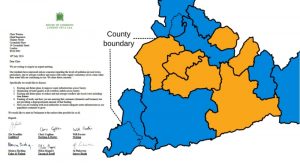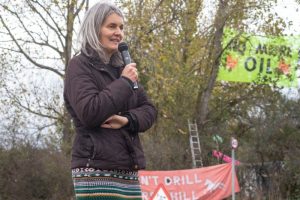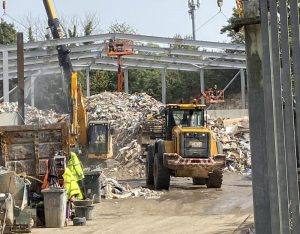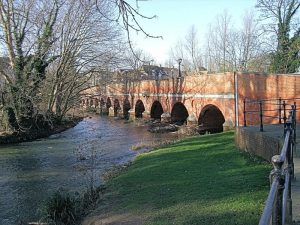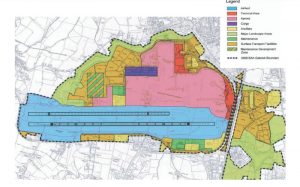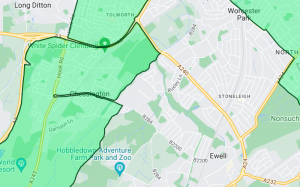More than most in the capital, South Londoners notice when the bus timetables change. Whether this stems from a love of the iconic red fleet or an over-reliance on the service due to a lack of London Underground coverage is besides the point.
Therefore, news of Transport for London’s (TfL) latest bus rejig last month did not go unnoticed. The changes affecting the capital’s most southerly boroughs have seen routes withdrawn and re-drawn.
Perhaps the most exciting changes have come in the form of the entirely new 439 and S2 routes, that would take South Londoners across Sutton, Merton, and Croydon in a fleet of brand-new EV buses.
Last month I took a long and winding ride on the 439, which was comfortable but eerily quiet. Now I decided to jump on South London’s other newcomer, the S2. The S2, introduced on March 2, has replaced sections of the old 470 and S4 route that took passengers between Epsom town centre and St Helier station. The route is operated by Go Ahead.
Getting a measure of what a bus service is actually like is hard, as there are so many variables that can influence the length and enjoyment of the journey. That said, I thought it best to take a ride mid-afternoon to get a taste of the post-lunch slump and rush hour mania.
While waiting outside my local Ewell East bus stop on an overcast Monday afternoon, I felt a pang of nostalgia for the former 470 service. While slow and clunky, the old route served me well during my school days.
However, this nostalgia quickly evaporated as the souped-up S2 came into view. The bright LED numbering and hum that come with all-electric vehicles suggested TfL was taking bus travel seriously in South London.
Once onboard you are met with a range of features designed to keep passengers occupied during their journey. The charging points (currently working) and display telling you how far you are from your destination are mod cons we will soon come to expect from all buses in London.
As with all new services, teething problems are common. Despite some press and handy diagrams displaying the new changes, some passengers remained confused by the change. Elderly passenger Sharon, on her ‘potter round the shops’ in Sutton, told me: “It’s the first time I’ve been on it. They’ve messed it all up, I don’t know where it goes now.”
I saw this confusion unfold later on in my journey as several passengers stood by the doors of the bus, waiting for what they thought was their stop only to find out the new stop was a further 200m up the road. One disgruntled passenger mumbled: “I’ve got to go all the way back on myself now.”
However, she admitted that she had seen news of the changes online. Moreover, she welcomed the increased frequency of the new service. She said: “They’re more frequent than the 470 though, which is good. If you missed it you thought, ‘oh god I have to wait half an hour’.”
Fellow passenger David agreed, saying: “I’ve seen these new buses fly past much more often than the ones before. It makes a change.” The route is largely residential, choosing to link up Sutton and North East Surrey’s stations via a network of sleepy treeline avenues rather than on the more hectic dual carriageways.
The salubrious route, plus the relative quiet of the electric engine, can make for a pleasant journey. Whilst gliding through Cheam’s affluent Sandy Lane, Sharon turns and says: “I like this bit, nice houses round here.”
However, as the service passes through Sutton town centre it becomes apparent that this is not the service for those in a hurry. While temporary traffic lights and the mid-journey driver change did their best to obstruct the service, the S2 route is far from direct.
The bus slows to a snail’s pace as it passes the decaying white edifice of the St Helier Hospital. Being a popular stop for visitors and medical professionals, most passengers alight at this point.
The one remaining passenger then begins to loudly cite the entire phonetic alphabet during a phone call to what sounded like a party planner. While this did provide some entertainment, the stuttered progress of the S2 meant I started to tire of her recital by the time she got to echo.
The next stage in the journey provided no relief as the bus passed through a location feared by learner drivers across Sutton and Merton. The dreaded four-lane Rose Hill roundabout.
After nearly an hour on the S2, the bus rolls up St Helier station ending the first leg of my journey. By this time the bus is empty save for me and the driver, which seems apt for the equally deserted St Helier.
Before starting on the return leg to Epsom, I ask the bus driver for his thoughts on the new service. He said the service is based out of the Sutton bus garage and is pretty easy-going compared to other routes.
He added: “It’s not been busy in general, to be honest. The buses are nice and smooth.”
During the journey back towards Epsom, you realise the journey’s most odious section comes when you pass through The Wrythe and its network of hilly residential roads. Things get a bit more straightforward once the bus passes through Cheam.
After leaving the bus on Epsom High Street, you are immediately struck by how busy Epsom’s main thoroughfare can be during rush hour. Its main road is teeming with school children hanging outside vape shops and weary late-afternoon shoppers trying to get in before closing time.
While the S2 is a pretty comprehensive route, taking in useful stations and popular shopping locations, it seems amiss to not extend the route that little bit further up to Epsom Hospital.
Surely a route joining Epsom Hospital with St Helier, which are joint in an NHS trust, would make sense for staff and visitors. While other services serve Epsom Hospital, it wouldn’t take much effort to extend the route.
Despite this, the S2 delivers on the whole. It gets you from A to B in comfort, and the increased frequency benefits those who relied on the previous service. Just don’t be fooled by its spruced-up appearance, it’s not taking you anywhere fast.
Related reports:
New Bus Route for S2 through the Borough
Image : Harrison Galliven on the S2. Credit the author.



